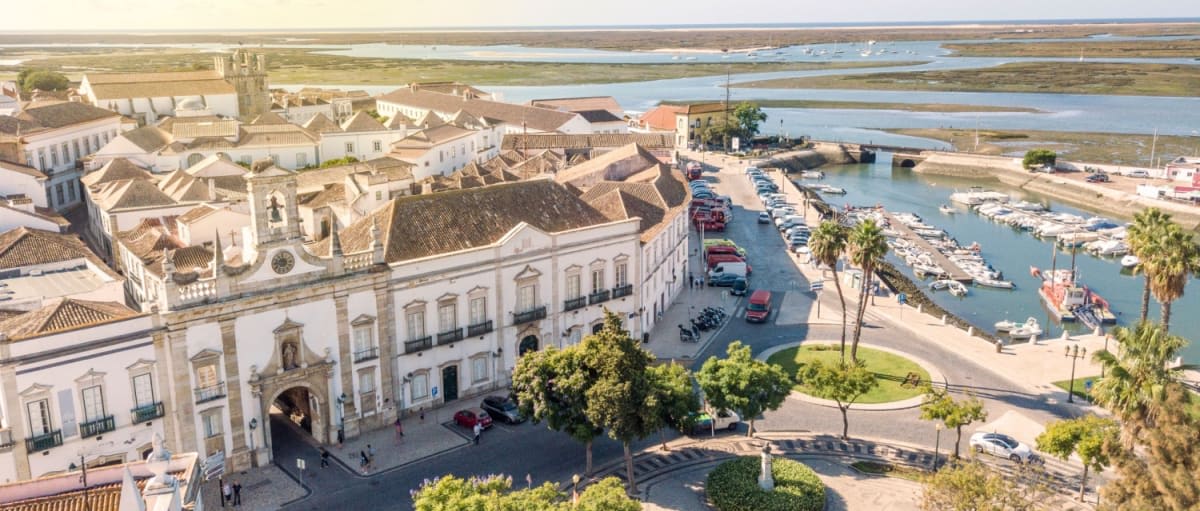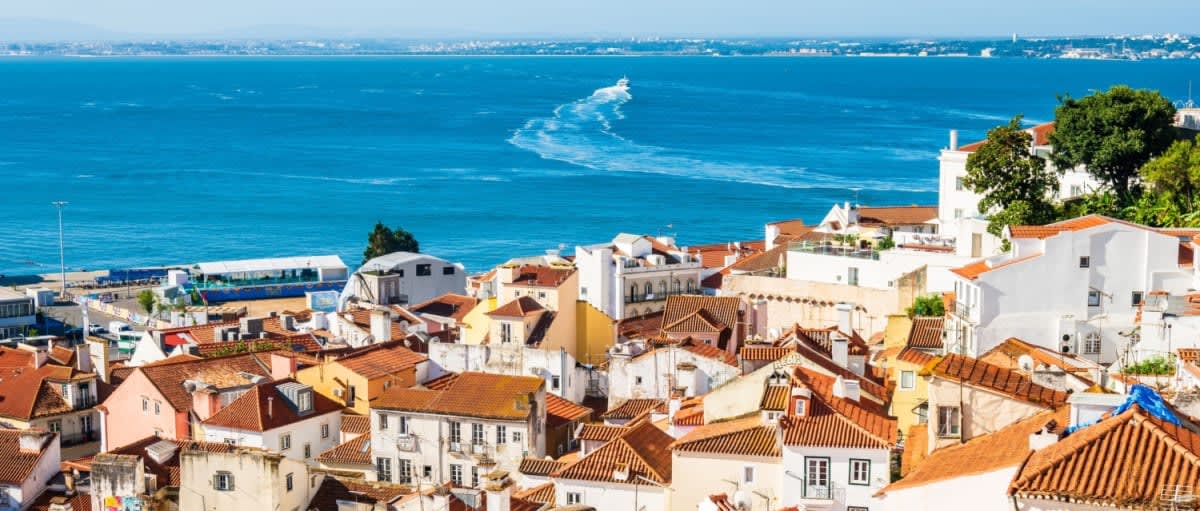Moving to Portugal is about sun, scenery and sea views, yes. But it’s also about setting up a secure and compliant life in a new country. While the relaxed lifestyle is one of the reasons many expats choose Portugal, the legal side deserves proper attention. Without preparation, what should be a smooth relocation can quickly become a bureaucratic headache. To stay legal in Portugal requires a little research.
Legal requirements around residency, taxes and everyday life are part and parcel of any move abroad – and Portugal is no exception. Even minor oversights can lead to fines or administrative stress. Whether you’ve just bought a home or plan to make Portugal your full-time base, understanding the country’s rules is key to settling in comfortably.
Here’s everything you need to know about the legal essentials of living in Portugal as an expat or property owner.
Contents

Why keeping legal in Portugal helps matters when moving
Legal life in Portugal can feel like a maze if you’re navigating it alone. From the moment you agree to buy a property, through to setting up your daily life, local rules apply – and many of them differ significantly from those in the UK or elsewhere.
That’s why working with a regulated, bilingual solicitor is strongly recommended. Ideally, choose someone independent of your estate agent or developer. Their role isn’t just legal – it’s also to represent your interests and make sure nothing slips through the cracks.
Your solicitor can support you with:
- Understanding your tax obligations as a resident or non-resident
- Registering for national healthcare and the tax system (NIF)
- Translating official documents and making sure they comply with Portuguese law
- Applying for long-term residence permits
While services like Google Translate have their place, nothing replaces a professional when you’re dealing with official processes. Many buyers seek out shortcuts – but a good solicitor saves you time and money because they prevent costly mistakes.
In Portugal, bureaucracy can come thick and fast – especially if you don’t speak Portuguese. Legal professionals trained in “right-first-time” applications make everything smoother. They’ll also help you stay future-proofed for things like inheritance law and financial planning – two areas often overlooked in the excitement of a move.
For a closer look at purchasing property, grab your free copy of our Portugal Buying Guide:
Download the Portugal Buying Guide
Getting residency in Portugal
If you’re planning to stay in Portugal for more than 90 days in any 180-day period, you’ll need to formalise your status. For EU citizens – including those from countries like Ireland – that process remains relatively frictionless. UK citizens, post-Brexit, need to follow the non-EU procedure.
Registering for residency is essential if you live in Portugal for six months or more per year. You’ll need to declare your intent at your local town hall, known as the Câmara Municipal, and apply for the “Certificado de Registo de Cidadão da União Europeia”. Often casually referred to as “residência,” this document confirms your legal right to live in the country.
This residency certificate is valid for five years and acts as a stepping stone toward permanent residence. After five years of uninterrupted legal living in Portugal, you can apply for a permanent residency certificate – or even citizenship, should you wish.
For non-EU nationals, different rules apply. You must apply for a visa in your home country before arriving. Popular options include the D7 visa (for passive income earners), the Digital Nomad visa or the Golden Visa if you meet investment thresholds.
Download the golden visa guide
Regardless of route, staying compliant with Portuguese residency laws means:
- Registering with your local town hall
- Enrolling in the public health system
- Declaring taxes as a resident if applicable
- Keeping your address updated with the immigration authorities
Don’t leave residency to the last minute – processing times can vary widely depending on location and seasonal workloads. It’s always wise to begin this step early in your move.
Portuguese police and legal culture
Portugal consistently ranks as one of the safest countries in Europe. The 2023 Global Peace Index placed it in the top 10 worldwide. However, that doesn’t mean you won’t interact with local authorities – in fact, expats often do.
Policing in Portugal operates slightly differently to what you might be used to. There are multiple branches: the GNR (rural police), PSP (urban), and PJ (criminal investigation unit). For day-to-day matters, you’ll mostly deal with local PSP or GNR officers, depending on where your property is located.
Don’t be alarmed if police appear more routinely visible – especially at roundabouts or during national holidays. Traffic stops, ID checks and road safety inspections are part of routine enforcement, and yes, you’re expected to comply without fuss.
What expats sometimes find challenging is the formal approach to authority. Portuguese police expect a respectful and cooperative attitude. Raising your voice or attempting to argue your way out of a fine won’t go down well. Even if you’re frustrated, staying calm and polite is essential.
In urban centres, officers may speak English. In rural areas, less so. Learn some key phrases and always carry necessary documents when driving, including:
- Vehicle registration
- Insurance paperwork
- Your passport or Portuguese ID
Should something go wrong – a burglary, for example – the process is also quite formal. You’ll need to file a queixa (official complaint), often in person at the police station, so take someone fluent in Portuguese if needed.
Knowing your rights under Portuguese law is useful – but understanding expectations is even better.
Vehicle laws and matriculation
Driving in Portugal may feel familiar at first glance – the rules of the road are similar and signage is intuitive. But owning and operating a vehicle as a foreign resident brings its own set of requirements.
One of the biggest mistakes new expats make is continuing to drive a UK-registered car beyond the allowed timeframe. Under Portuguese law, once you become a resident, you only have 60 days to import and matriculate your foreign vehicle. After that, the car is considered illegally operating and could be seized.
Matriculation – the process of officially registering your vehicle in Portugal – isn’t quick or cheap. You’ll need to:
- Pay import duty (unless applying for an exemption)
- Submit the car for a roadworthiness test (IPO)
- Acquire Portuguese number plates and registration documents
If your car doesn’t meet EU emissions standards or fails inspection, you might not be able to register it at all. Before you ship your car, ask: is it really worth the paperwork and expense?
Fines for non-compliance can exceed €1,000 and police checks are common. They’ll often stop foreign-plated cars in tourist areas to verify if the driver is within the legal time limit.
If you choose to buy a Portuguese car locally, the process is more straightforward. You’ll still need your NIF (tax number) and proof of residency, and you must register the sale within 60 days. Every vehicle must have insurance and pass its IPO annually from its fourth year.
Always check if your driving licence needs swapping. UK residents can usually drive on their licence in Portugal, but if you’re there long term, exchanging it for a Portuguese one may be required.
Making Portugal work for you legally
Living in Portugal as an expat is a joy when you’re set up correctly. Once you’ve ticked the boxes of residency, taxation, and vehicle registration, everyday life becomes simpler – and much more relaxing.
But it doesn’t end there. You’ll likely need a long-term plan, including:
- Wills and inheritance planning under Portuguese and international law
- Cross-border tax strategies, especially if you have income or property in other countries
- Healthcare cover, particularly if you’re not yet eligible for SNS (Serviço Nacional de Saúde)
Portugal offers schemes that benefit foreign residents – such as the Non-Habitual Resident (NHR) tax regime – but not all apply in 2025. This programme, which offered 10 years of favourable tax treatment, is being phased out. For new arrivals, the tax landscape may look different, with reforms prioritising middle-income families and green investments.
Still, the appeal of Portugal remains strong. Affordable living, mild winters and a welcoming environment make it a top choice for retirees and remote workers alike. Navigating the legal side early is what makes long-term happiness feasible.
You’re not expected to master all the ins and outs alone. Lean on our trusted experts – from lawyers to currency transfer experts – or book a call with our property consultants. Combine careful planning with a sense of adventure, and Portugal will reward you with a lifestyle that truly feels like home.
FAQs about staying legal in Portugal
Yes. If you’re a non-EU citizen – including UK nationals post-Brexit – you must apply for a visa before moving. Popular options include the D7 visa, Digital Nomad visa or Golden Visa. EU citizens must register locally after 90 days to remain legal in Portugal.
Work with a qualified, independent solicitor who understands Portuguese law. They will check land registry records, draft contracts, and ensure all taxes and permits are handled correctly. Avoid relying solely on estate agents or developers.
Only temporarily. Once you’re a resident, you have 60 days to import and register your car (matriculation). After that, driving a foreign-plated vehicle is illegal in Portugal and can result in fines or seizure.
You’ll need a NIF (Portuguese tax number), proof of residency, valid ID or passport, and registration with the healthcare system if you’re staying long term. If driving, you also need local car registration and insurance.
Absolutely. Legal systems and paperwork in Portugal can be complex, especially if you don’t speak the language. A bilingual property lawyer ensures contracts, taxes and residency processes are completed correctly and on time.









